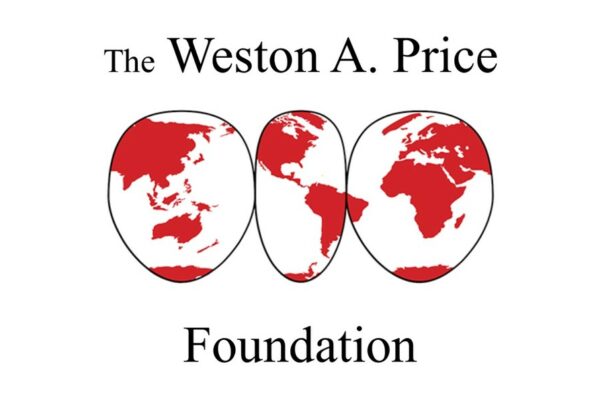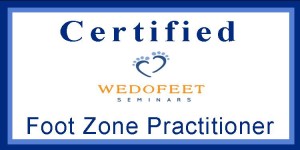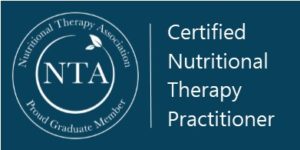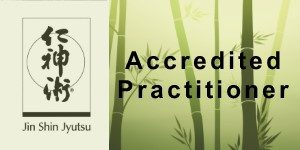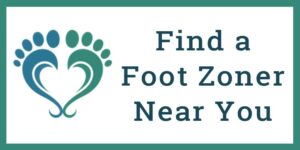This is Part 6 of a 6-Part guest post series on Emotional Anatomy by Steven Horne.
I first met Steven at the LDS Holistic Living Conference where he was teaching a class on herbal remedies. His class was completely full and after hearing him teach I understood why. I recently participated in a free preview of Steven’s Emotional Anatomy webinar and following the webinar contacted Steven to see if he would be willing to submit a guest post on the topic of Emotional Anatomy. I am grateful and humbled that he accepted.
Steven is offering the complete, seven-session Emotional Anatomy Webinar for only $127. The complete webinar goes into greater detail about the various types of emotional wounds and tools you can use to help people heal from them. On his Tree of Light Publishing website, you’ll also find a free preview class that explains the entire emotional map he uses and his technique for healing emotional wounds. I hope you enjoy the following Emotional Anatomy – Conclusion by Steven Horne.
 Feelings are important. We may not like all the feelings we have, but they are all important, even the so-called “negative” ones. Negative feelings are like pain. We may not like pain, but if we didn’t feel pain, we wouldn’t know what was harmful to the body or realize when we had injured ourselves. Furthermore, without the discomfort associated with disease symptoms we wound not know that we were sick and would not be motivated to seek healing.
Feelings are important. We may not like all the feelings we have, but they are all important, even the so-called “negative” ones. Negative feelings are like pain. We may not like pain, but if we didn’t feel pain, we wouldn’t know what was harmful to the body or realize when we had injured ourselves. Furthermore, without the discomfort associated with disease symptoms we wound not know that we were sick and would not be motivated to seek healing.
What pain does for the body, negative emotions do for the soul. Negative emotions tell us when something is wrong in our lives, which needs to be identified and healed. Feeling angry, sad or even depressed is a sign that a particular behavior or attitude is harmful to us. So, just like pain can teach us to avoid injuring our body, negative emotions can teach us how to stop harming our soul.
Unfortunately, few people learn the lessons that pain and negative emotions are trying to teach. When it comes to pain, most people seek symptomatic treatment. Without identifying the cause of the pain (or their disease symptoms) they take drugs that merely address the symptoms. This provides temporary relief, but the real problems are never resolved and overall health deteriorates over time. This form of medicine is known as allopathy, which literally means “against the symptom.”
As a natural healer, one of the hardest jobs I have is to help people understand that natural healing does not provide symptomatic relief. Natural healing is about identifying the root causes of health problems and fixing them. The true natural healer doesn’t treat diseases, per se, but rather looks at the habits and lifestyle of the person to determine what they are doing that is harming their body. The “cure” is to fix the cause, which may mean addressing nutritional deficiencies, reducing exposure to toxins, drinking more water, breathing deeply, getting more sleep or exercise or dealing with sources of emotional stress.
When the cause is addressed, the effect (the disease symptoms) disappear. As the pioneer herbalist Samuel Thomson stated, “Remove the cause and the effect will cease.” In the mid 1980s, I figured out that people do the same thing with their negative emotions. They practice a form of “emotional allopathy,” meaning they try to make the negative feelings go away without understanding what is causing them. People do this in a variety of ways. For example, they may take drugs to suppress their depression or anxiety, but they may also seek to numb their emotional pain through alcohol, eating, sex or other addictions.
There are also more subtle ways people practice emotional allopathy on themselves or others. For instance, most of us have been taught to suppress one or more emotional responses by denying what we are feeling. We may also learn to project the responsibility for what we feel outward through blame. That is, we seek to restore our sense of well being through attacking others, playing the victim or otherwise trying to make others responsible for our happiness.
All of this is unfortunate, because the feelings we experience in our heart are the key to discovering our ultimate happiness. Just as pain can help us realize something is wrong and cause us to seek to healing, our negative emotions can motivate us to make the changes in our life that will ultimately bring us joy, love, peace and happiness. We just have to be willing to listen to our heart and understand what these feelings are trying to tell us.
Unfortunately, most of us have been told over and over again that we can’t trust our heart and our emotions. Instead of learning to listen to our negative feelings and understand them, we’re encouraged to deny them, ignore them, suppress them or simply react unconsciously to them. Rarely are we helped to understand them and learn how to use them in constructive ways.
As the result of a profound healing experience in 1986, I came to realize that running away from any of our emotions is like running away from the monster in a childhood nightmare. As long as we deny, suppress or otherwise try to “get rid of” a feeling it continues to chase us. As the title of a book by Carol Truman so eloquently states, “Feelings Buried Alive Never Die.”
Denying one’s feelings isn’t the only way one may try to deal with them. One may also try to blame what they feel on others. Now, it is true that we can have a negative emotional reaction to the behavior of others. For instance, I’m sure that all of us would be scared if someone was pointing a gun to our head and threatening our life, but these reactions to the behavior of others are temporary emotional reactions. Our overall mood and our typical emotional reactions (or personality) are based on what is inside of us, not what is happening in the world.
To demonstrate the truth of this idea, think about someone you dislike. It is quite likely that there are other people who love that person. It is also likely that others may dislike people you love. What is true for people is also true for life events. A situation that might evoke feelings of hurt or anger in you might not provoke the same reaction in someone else. You might be scared to death in a situation that another person might view as an interesting challenge.
As you contemplate this, you will see that your emotional reactions are not primarily caused by the world around you, they are primarily the result of what is inside of you. More specifically, your emotional reactions are caused by how you chose to respond to a given situation. Viktor Frankl, a psychologist who survived the concentration camps of Nazi Germany, learned that most people, when treated like animals, reacted like animals. However, he also observed that such treatment actually brought out the best in others.
“We who lived in the concentration camps can remember the men who walked through the huts comforting others, giving away their last piece of bread. They may have been few in number, but they offer sufficient proof that everything can be taken from a man but one thing: the last of the human freedoms — to choose one’s attitude in any given set of circumstances, to choose one’s own way.” [Viktor Frankl, Man’s Search for Meaning, pgs. 65-66]
Thus, a person’s ultimate emotional well-being is dependent on what is inside of them, not what is going on in the outside world. So, when you heal what is inside of you, your emotional reaction to other people and the circumstances of your life will also change. For more information on understanding emotions and healing them, read my book, The Heart’s Key to Health, Happiness and Success. You can also check out my Healing with Flowers book and my Emotional Anatomy DVD. All are available at Tree of Light Publishing.
Steven Horne is professional member and recent past president of the American Herbalists Guild (AHG) and a professional member of the International Iridology Practitioner’s Association (IIPA). He has also served on the board of directors of both organizations. An herbalist, natural health teacher, author, and consultant, he is a popular speaker and students find what he teaches is practical and easy to understand and apply. Steven is the author of numerous books and course on natural healing. He has been a consultant and product formulator for several herb companies and the founder Tree of Light Publishing, an educational organization dedicated to helping people to heal themselves on all levels. Recently he started the School of Modern Herbal Medicine, which is dedicated to “excellence in herbal education.” He also offers personal health consultations through ABC Herbs in St. George, UT.
Other articles in this series include:
- Emotional Anatomy – Introduction
- Emotional Anatomy – Overview
- Emotional Anatomy – The Physical World
- Emotional Anatomy – The Heart World
- Emotional Anatomy – The Mental World

